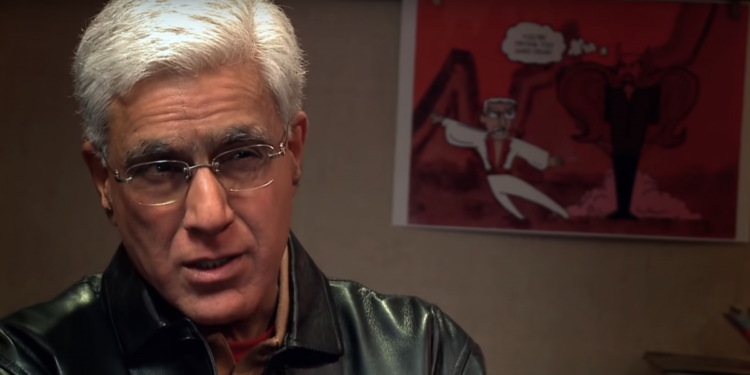It would be wrong to call Karan Thapar a journalist today. His claim to fame anyways lies with his deep rooted political connections and his ‘illustrious’ family. Karan Thapar has had a long career to say the least, from The Hindustan Times to CNN-IBN and finally India Today. After the controversial article written on Mr. Kulbhushan Yadav published in 2017, which landed him into a controversy with the Indian public and caused a dent to his already dwindling reputation, he has now come up with a more sensational book. His book titled ‘Devil’s Advocate: The Untold Story’ was his attempt to get back into the hustle and bustle of the top circles in India, and the only way Karan Thapar and his ilk know to bounce back is to create a bigger and better controversy, and the book delivers on that front. From revealing the names and statements of his sources to giving his opinions on why he was shunned by the Bharatiya Janata Party members in the Narendra Modi era, Karan touches upon many things. It was surprising for many that the Shekhar Gupta owned ‘The Print’ has decided to call out Karan Thapar for his latest compilation of mistakes i.e. the book.
An article titled ‘Why is Karan Thapar complaining? His dynasty holds a key to Lutyens’ Delhi’ published in The Print on 24 July 2018 explains the powerful connections Thapar enjoys all thanks to his family. His family had been one of the few who enjoyed the most under the British rule, a reward for remaining loyal to the British during the colonial phase in India. A chart called “The Thapar dynasty” explains how the Thapars seamlessly changed their allegiance from the British to the Congress in the post-independence era and managed to maintain their strong connections with the Nehru-Gandhi family. A connection which helped Karan immensely in his career as a ‘journalist’. The article intricately exposes Karan Thapar’s claim to fame and the reason for his success as a ‘journalist’ and ‘interviewer’, his family’s hand in glove relationship with the British in the pre-Independence era also might explain Karan’s fascination and use of impeccable Oxbridge English.
Another article published in The Print titled ‘Karan Thapar broke the cardinal rule of journalism and is too entitled to admit it’ shows the faults in the book and his journalistic practices. Karan exposes the sources in his books and is rather proud of having connections in both the BJP and Congress alike. However revealing information, which his alleged ‘sources’ had revealed in confidence and on conditions of anonymity, is shameful to say the least. Yet, the darling of the leftist cabal Karan Thapar did not think twice before revealing their names and even went on to add his own fabrications, conversations which took place inside his own mind. After all, what better way is there to gain popularity than to leech out some of it from VIPs, the book had to be made a best seller. That is the Karan Thapar style of journalism, and interviewing where topics discussed ‘off the topic’ end up finding their way into a book.
An excerpt from the book was published on ‘The Wire’ dealt exclusively with incumbent PM Narendra Modi and why he had walked out of an interview halfway. The article succeeded in grabbing headlines for two reasons, it was related to the highly popular Indian Prime Minister and gave the leftist cabal a reason to point fingers. While we wait to find out whether the excerpt was able to achieve the target it was released for, there is one thing which we can say for sure, the major part of the excerpts must have taken place inside Karan’s head. An ex-MP and ex-diplomat, Pavan K. Varma used his official Twitter handle to rubbish the claims made by Karan in his book. More such denials and accusations will follow suit in the days to come.
What Karan Thapar did not reveal in the book are his family connections and his luxurious life as ‘The Devil’s Advocate’. His uncle, Army General Pran Nath Thapar was the only Indian Army chief ever to lose a war, the one against China in 1962, following which he was forced to resign on 19th November. One of his aunts and a ‘distinguished’ historian Romila Thapar had single handedly distorted Indian history for years by choosing to focus on the colonial rulers from the Arab-Muslim and English world while she subtly excluded the Indian rulers and their history. His communist uncle Romesh Thapar had remained a CPI (M) member until his death. But Karan Thapar could not have narrated all this, after all it could blemish his image as an acclaimed ‘unbiased journalist’. A new book consisting of these relevant topics and non-fictional in nature needs to come out about Karan and his past and present. One preferably which is penned by an author other than Thapar himself, as he is prone to creating fiction as has been proved by this book.

























